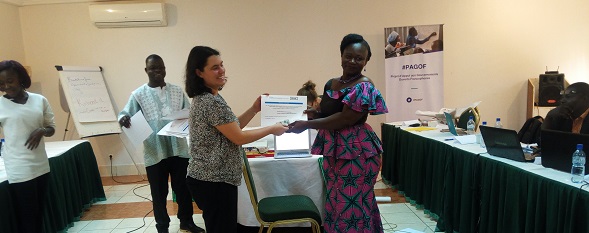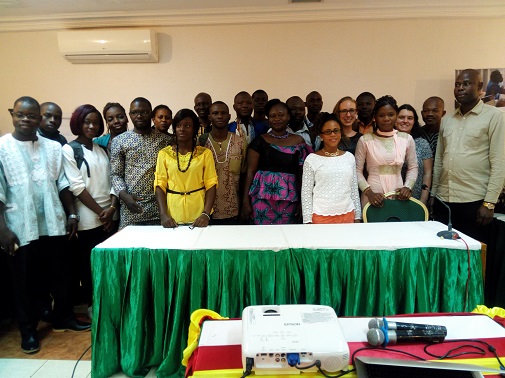#PAGOF and open data: 35 data sets published on data.gov.bf
Training and data extraction workshops for the administration and civil society
Commitment 11 is led by the National Agency for the Promotion of ITCs (ANPTIC) via the Burkina Open Data Initiative project (BODI, a project which is part of a broader policy to open public data). ANPTIC has benefited from support from #PAGOF in order to conduct training and data extraction workshops. These workshops were organised in February and March 2019 and were supervised and led by AKVO, an NGO specialised in open data in the context of development projects.
It involved setting up data squads in the administration and civil society, then building their technical capacities on open data and, finally, assisting them with the extraction, processing and publication of data.
A major aspect involved gathering civil society and the administration so that each actor could understand the expectations and needs of the other in terms of data, and also to strengthen the relationship of trust between users and creators. A total of 37 actors were present, from 9 civil society organisations and 10 ministries (health, economy, national education, agriculture, mines, energy, National Institute of Statistics and Demography…).
During these workshops, 35 data sets on priority areas identified were published on the portal data.gov.bf (number of mine sites by method of exploitation from 2008 to 2017; budgetary revenue from 2008 to 2016 in billions of FCFA; number of cases of and deaths due to severe malaria from 2013 to 2015; etc.). They are available opposite.

During these workshops, 35 data sets on priority areas identified were published on the portal data.gov.bf (number of mine sites by method of exploitation from 2008 to 2017; budgetary revenue from 2008 to 2016 in billions of FCFA; number of cases of and deaths due to severe malaria from 2013 to 2015; etc.). They are available opposite.
Open data: democratic and economic issues
Opening public data gives greater transparency to the government and its actions, and increases democratic oversight. It is a base for citizen participation, as it provides easy access to reusable information which allows citizens to oversee public action and call to account the authority.
This also improves the effectiveness of government services and new knowledge is acquired by combining difference sources of big data.
Finally, open data is increasingly regarded as an economic issue which goes beyond simply the issue of transparency. Open data holds huge potential for innovation and economic development, as it creates and improves private products and services and boosts innovation.


